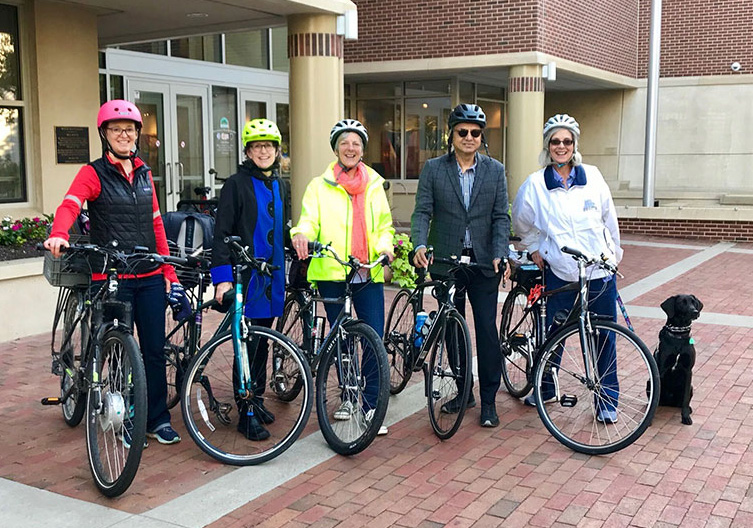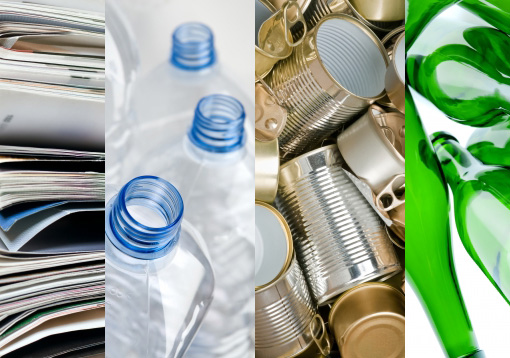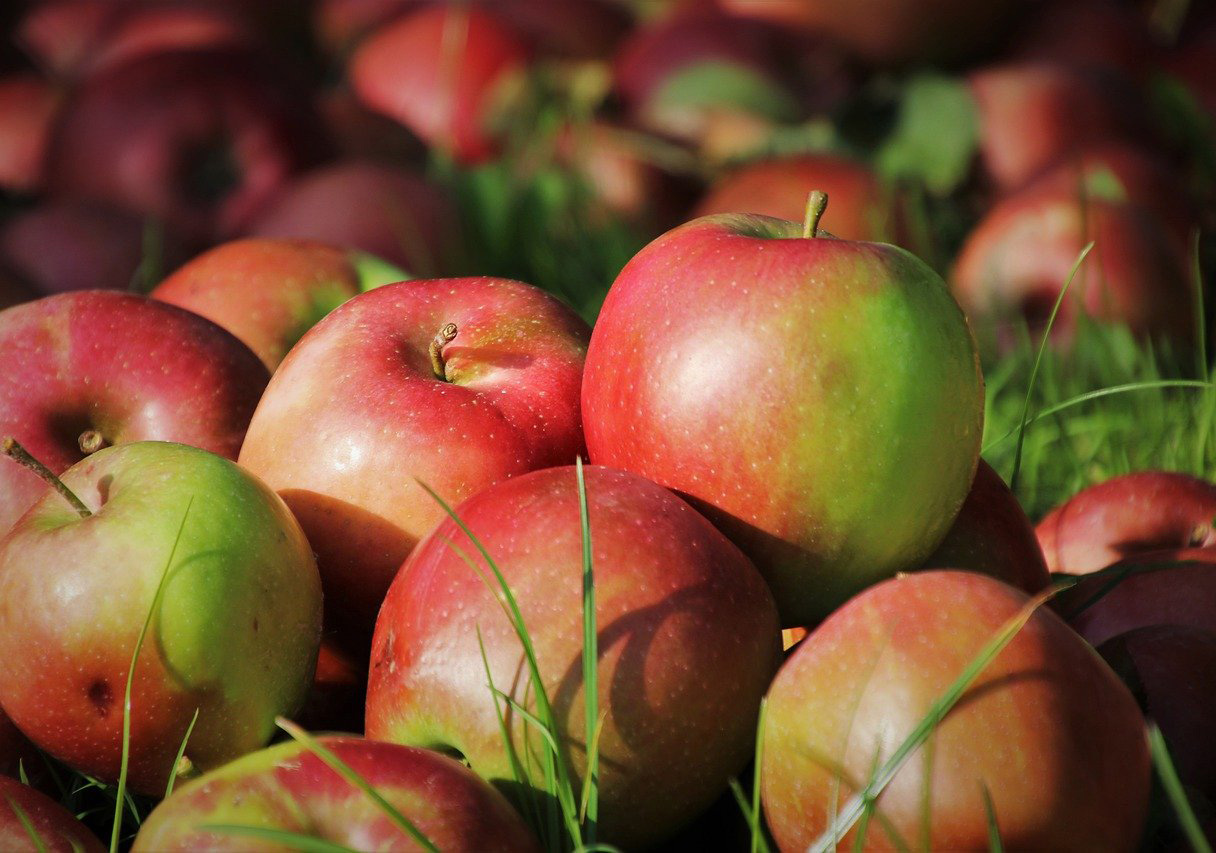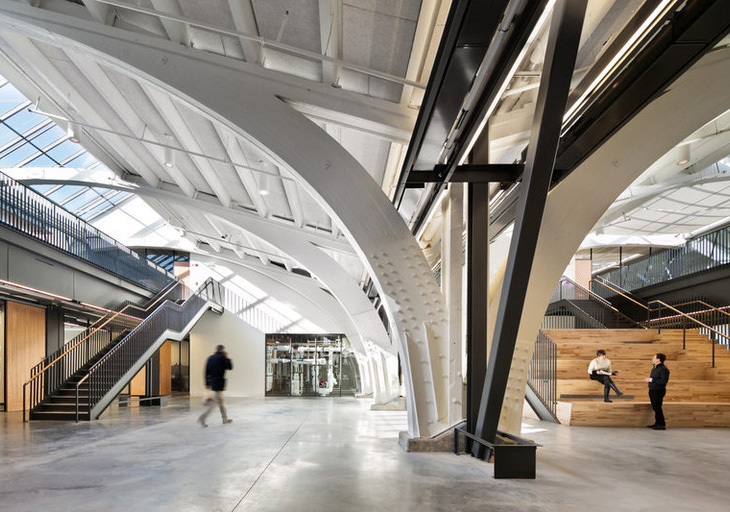Sustainable Operations at Penn State
Sustainable Operations means ensuring the processes and functional activities of the university facilitate the achievement of sustainability. Operations include the functions that make the university run – from Housing and Foods to Procurement to Land Management to Building Design and Operations. To achieve sustainable operations, all decision-making needs to consider the long-term health of people and the planet along with economic performance.
As a reminder, Sustainability is the simultaneous pursuit of human health and happiness, environmental quality, and economic well-being for current and future generations. Some highlights of sustainable operations activities at Penn State are shown below.

Transportation
As Penn State continues to grow, the pressure is on for Transportation Services to accommodate transportation and parking for students, staff, and visitors. The University is working to sustainably manage its growing transportation demands by switching to alternative fuels, reducing oil consumption, increasing the fuel efficiency of fleet vehicles, and encouraging the use of shared, active, and public transportation.

Recycling, Composting and Waste
Reducing what and how much we consume is the most difficult, but most important part of waste management. Penn State takes pride in the programs and efforts taking place related to recycling and composting at Penn State, but it takes everyone to drastically reduce the amount of waste we send to the landfill each year, especially as recycling policies continue to change. Learn how to avoid creating unnecessary waste at Penn State and how to properly recycle the rest.

Food Services
Penn State is serious about reducing waste, educating our students about sustainable practices, and encouraging a sustainable lifestyle. Visit Penn State Food Service’s website for information about their food waste reduction program, efforts to incorporate local foods into dining halls, and other efforts.

Energy
Energy usage is the largest contributor to Penn State’s direct greenhouse gas emissions profile. Penn State has reduced its campus greenhouse gas emissions by 53 percent since 2005. This reduction in emissions has been based on a foundation of increased levels of combined heat and power (CHP), energy conservation, and targeted renewable energy purchases.

Landscapes
The University, with sponsorship from the University Park Fee Board and in partnership with EcoAction, conducted a planning effort to increase the ecological landscape management strategies that can be implemented to transition the predominately tree and lawn landscape to a more ecologically intense, lower input series of landscape typologies.

Green Buildings
Penn State developed and implemented a University policy that guides sustainable elements in the design and construction of University facilities in accordance with USGBC’s Leadership in Energy and Environmental Design (LEED). As of April 2025, the University will be conducting a comprehensive review of the Design & Construction Standards.


